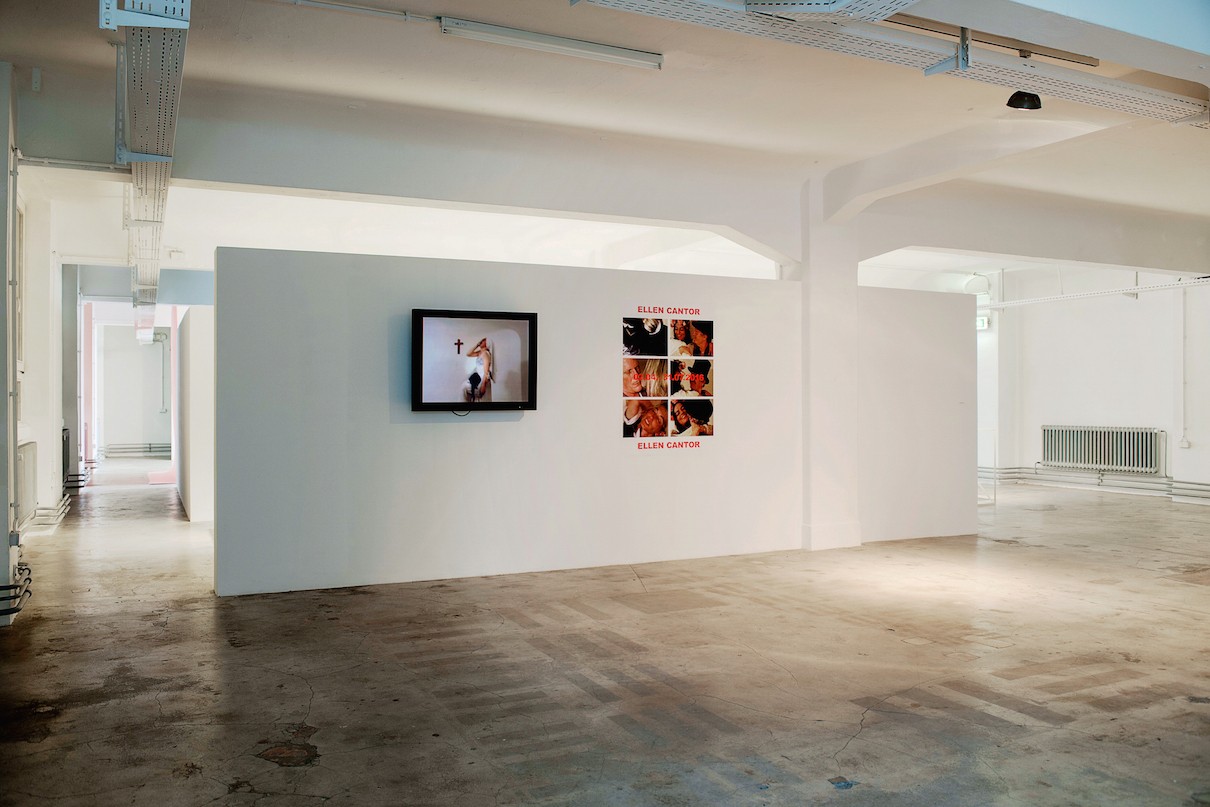Ellen Cantor
02 Apr - 31 Jul 2016

Ellen Cantor, installation view, 2016
Courtesy of the Ellen Cantor Estate
Photography: Frank Kleinbach
Courtesy of the Ellen Cantor Estate
Photography: Frank Kleinbach
Ellen Cantor
2 April –31 July 2016
Ellen Cantor combined ready-made materials with diaristic notes and drawings to probe her perceptions and experiences of personal desire and institutional violence. In her drawings, paintings, collages, and videos, Cantor lifted characters and sequences from iconic films, reorienting the ideological transmissions of the source material. Fictional figures from Disney cartoons, cult horror films, New Wave cinema, and family movies provide a visual foil to Cantor’s intimate disclosures. Magnetised by the doleful naivety of characters such as Snow White and Bambi, Cantor would, in her drawings, extend their narrative horizons to include vivid sexual encounters and crisis-ridden relationships.
“My perversion is the belief in true love,” is what Cantor titled the only survey exhibition of her videos held in her lifetime. This phrase, a sincere emotional disclosure doubled up as an affront to the structural ‘perversions’ of normative desires, gets to the root of the materials in this exhibition. Cantor’s work always proceeds with a certain force of will: political in intent, figurative, precise, dramatic, emotional, and, as Cantor herself liked to put it, “adult in subject matter.”
A feature of the exhibition and the focus of the associated publication is Cantor’s film Pinochet Porn. Originally a suite of drawings named Circus Lives from Hell (2005), Pinochet Porn is an episodic narrative about five children growing up under the regime of General Augusto Pinochet in Chile. Featuring a cast of close friends and collaborators, and shot in New York and London, Pinochet Porn stages a libidinal critique of the systematic and sadistic destruction of self-expression and experience. History is made observable through Cantor’s fictive speculations on private experience within a totalizing political order. The story ends with a question: Is tragedy a choice?
This exhibition is formulated as a survey in the mode of the homage. It desires to bring together a rich body of work, articulating some of the key strands and ways of working that fuelled Cantor’s practice, in dialogue with some of the friends and collaborators that informed her work, those she called the circle of “magical intuitive co-operation.”
2 April –31 July 2016
Ellen Cantor combined ready-made materials with diaristic notes and drawings to probe her perceptions and experiences of personal desire and institutional violence. In her drawings, paintings, collages, and videos, Cantor lifted characters and sequences from iconic films, reorienting the ideological transmissions of the source material. Fictional figures from Disney cartoons, cult horror films, New Wave cinema, and family movies provide a visual foil to Cantor’s intimate disclosures. Magnetised by the doleful naivety of characters such as Snow White and Bambi, Cantor would, in her drawings, extend their narrative horizons to include vivid sexual encounters and crisis-ridden relationships.
“My perversion is the belief in true love,” is what Cantor titled the only survey exhibition of her videos held in her lifetime. This phrase, a sincere emotional disclosure doubled up as an affront to the structural ‘perversions’ of normative desires, gets to the root of the materials in this exhibition. Cantor’s work always proceeds with a certain force of will: political in intent, figurative, precise, dramatic, emotional, and, as Cantor herself liked to put it, “adult in subject matter.”
A feature of the exhibition and the focus of the associated publication is Cantor’s film Pinochet Porn. Originally a suite of drawings named Circus Lives from Hell (2005), Pinochet Porn is an episodic narrative about five children growing up under the regime of General Augusto Pinochet in Chile. Featuring a cast of close friends and collaborators, and shot in New York and London, Pinochet Porn stages a libidinal critique of the systematic and sadistic destruction of self-expression and experience. History is made observable through Cantor’s fictive speculations on private experience within a totalizing political order. The story ends with a question: Is tragedy a choice?
This exhibition is formulated as a survey in the mode of the homage. It desires to bring together a rich body of work, articulating some of the key strands and ways of working that fuelled Cantor’s practice, in dialogue with some of the friends and collaborators that informed her work, those she called the circle of “magical intuitive co-operation.”
